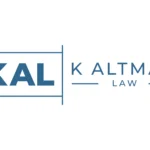Understanding student due process is important for students as it protects their fundamental rights in educational settings. Being knowledgeable of these procedures ensures they’re justly treated during disciplinary actions. Armed with this understanding, students can navigate situations that might impact their academic journey, build trust with the institution, leading to a more transparent and open academic environment, and promote a just learning environment for all.
What is Student Due Process?
At its core, due process revolves around the principle of fairness. In legal terms, it refers to the rights and procedures that individuals should be granted ,and the government should respect, when facing potential deprivation of life, liberty, or property.
In the education sector, due process makes sure that students are treated justly, especially when facing disciplinary actions that might significantly impact their academic journey.
Who needs an Education Attorney?
Origin from the 14th Amendment
The 14th Amendment to the U.S. Constitution declares that no state should “deprive any person of life, liberty, or property, without due process of law.” This statement serves as the foundation for student due process in public educational institutions.
Public vs. Private:
The nature and scope of due process protections can differ based on whether an educational institution is public or private. Being government bodies, public institutions are directly governed by the Constitution’s due process protections. while private schools have their own internal policies and contractual bindings, but might still have legal obligations depending on state laws.
Key Principles of Student Due Process
The general principles of due process for student defense often include:
- Notice: Students should receive a written notice of the charges or what being accused of. This notice should give enough details for the student to understand the nature of the violation and be able to prepare his defense.
- Hearing: Students should have the chance to present their side of the story in front of a non-biased body or individual, provide evidence, and potentially call witnesses. The formality and structure of these hearings can vary.
- Right to an Advisor or Representation: Students may have the right to be accompanied by an advisor or attorney during the hearing, depending on the institution and the severity of the charges..
- Right to Appeal: Students should have the opportunity to appeal decisions, especially when the consequences are severe.
- Evidence: Students should be granted access to the evidence against them and should have the opportunity to challenge or refute that evidence during the hearing.
- Impartiality: The decision-makers should not have any bias or conflict of interest related to the case.
Special Considerations in Different Settings
- K-12 Schools: Based on age and maturity, due process in primary and secondary settings varies significantly. While primary school students are protected by simpler procedures and more parental involvement, secondary students have a more formalized process, due to their better understanding and potential complexities of their issues.
- Higher Education: In due process in colleges and universities, the proceedings are more formal. The issues often revolve around academic dishonesty or misconduct, making the processes here rigorous, with formal hearings, rights to representation, and more detailed investigations, considering the consequences on a student’s academic and future journey.
- Online Education: In online learning environments, ensuring academic honesty becomes more complex, as monitoring assignments or online exams for plagiarism requires advanced tools. Moreover, issues like cyberbullying or misuse of online platforms for academic discussions adds to the challenges, making it necessary to redefine the due process.
- Special Education: Due process in Special Education is more detail-oriented, making sure that students’ educational rights aren’t compromised due to their disabilities. In this case, more considerations apply like Individualized Education Plans (IEPs), evaluations, and parental involvement. Any changes in the educational setting or services of a student with disabilities mostly requires thorough reviews, parental consent, and in some cases legal hearings if disagreements happen.
Title IX and Due Process
Title IX, a federal law implemented in 1972, prohibits gender-based discrimination in education programs and activities funded by the federal government. It’s often related to addressing sexual harassment and assault within the educational settings.
In recent years, Title IX proceedings have caused some controversies and debates surrounding due process. Critics state that some colleges and universities, while trying to address sexual misconduct assertively, might fail to spot the rights of the accused. There’s a pressure between ensuring victims of sexual misconduct are heard and protected, and guaranteeing that the accused are given a fair chance for defending themselves.
To strike a balance, due process in Title IX proceedings has faced close examination. For the accuser, there’s a focus on creating a secure environment to report incidents without the threat of backlash, providing necessary support, and ensuring a thorough investigation. For the accused, protections include receiving detailed notice of the charges or allegations, having a chance to respond, accessing evidence against them, and, oftenly, a live hearing where cross-examination is granted mostly done by advisors rather than the parties directly.
Common Misconceptions about Student Due Process
There are various myths and misconceptions surrounding student due process. For a better understanding of students’ rights, it’s important to address and debunk them.
One of the misconceptions is that it’s believed that private schools are not obliged by any due process procedures, but many states have laws ensuring basic fairness. Another misconception is that due process rights are only for severe punishments like expulsion, when in fact, they can apply to various disciplinary measures.
When and why to seek legal representation
When it comes to student due process, seeking legal representation can be a critical step to protect student’s rights and navigating complex institutional procedures. It’s important to seek legal help when the stakes are high like cases involving long-term suspension, potential expulsion, or serious allegations like sexual misconduct. A skilled student defense attorney can help clarify the student’s rights, assist in preparing for hearings, and ensure that the school or university are bound to its own policies and applicable laws. Additionally, the procedures in educational environments frequently resemble legal actions, underscoring the invaluable role of an attorney’s expertise.
Having a legal expert can help students efficiently challenge any perceived injustices, especially with the evolving regulations of Title IX and educational laws. Essentially, seeking help from a student defense attorney ensures that a students’ rights are protected and the student’s voice is heard under the principles of due process.
Examples where student due process is violated
Violations of student due process have different forms. Here are some examples, drawn from real-life cases, controversies, and common concerns:
- Lack of Adequate Notice: If a student is not properly informed about the specific charges or allegations against them, or if the notice isn’t in a written format or vague, it can prevent them from properly preparing for their defense. As an example, a student receives a notice addressing that they violated a “code of conduct” without providing specifics about what actions allegedly violated which specific provisions.
- Failure to Provide a Hearing: Refusing students an opportunity to present their side of the story before disciplinary action is taken. For example, if a school expels a student based on an accusation only without allowing the student any form of hearing.
- Bias in Decision-Making: If the decision makers have shown clear bias against the student or have a conflict of interest, it violates the principle of impartiality. For example, a student is judged by a group of decision makers that includes a person they have personal conflicts with.
- Denial of Representation: There are cases where the accused students can have an advisor or attorney. Denying the student or limiting the role of such representatives is considered a violation of student due process In cases where a student’s rights to have an advisor or attorney are not honored or where rules excessively limit the role of such representatives, due process may be compromised.
- Inadequate Access to Evidence: If students are not granted access to the evidence being used against them, or if they’re not allowed to present counter-evidence, due process may be compromised. As an example, a university holds back a witness statement from a student facing discipline.
- Severe Punishments: If a punishment is excessively severe compared to the allegation,especially in the absence of adequate reasoning or procedure, it may be considered as violating due process.
- No Right to Appeal: If students are not given the chance to appeal a decision, especially one that has significant consequences for their academic and future career, it can be seen as a due process violation.
- Violations in Title IX Proceedings: This has been the most criticized area, especially in sexual misconduct allegations. For example, accused students have been denied due process rights in some universities. Other cases are issues like not being allowed to cross-examine the accused students, not having access to all evidence against the accused, or facing biased judgment processes.
- Ambiguous/ Broad Codes of Conduct: Sometimes, codes of conduct or school policies can be so vague or broad that students can’t reasonably know what behavior is forbidden. Punishing students based on such ambiguous standards can be seen as a due process violation.
Further Reading
U.S. Constitution, Amendment XIV.
“Student Rights and Responsibilities” by James A. Rapp.
Title IX and its implications for colleges and universities.
Insights
Contact K Altman Law for Defending your Rights as a Student
The complexities of student due process cannot be overstated. They make sure that students’ rights are not violated, especially during moments that can dramatically influence their academic journey. Yet, as with any system, it’s not free from flaws, which can sometimes blur the lines of justice, making it crucial to seek legal representation. A student knowledgeable of their rights, backed by a skilled student defense attorney or a legal professional, stands a better chance against potential procedural problems.
If you are facing allegations of student misconduct or other charges, contact K Altman Law today to learn more about the legal services we offer. Our experienced team of litigators, academicians, and student advisors can provide you with exceptional legal representation and a robust defense










